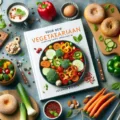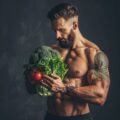When Alena Kate Pettitt, known online as ‘The Blonde Vegan’, revealed she was no longer following a vegan diet, it sparked a range of reactions across the wellness community.
Understanding Her Decision with Compassion
In a vulnerable Instagram post, Alena shared how struggling with her health and wellbeing led her to reintroduce some animal foods. She emphasized this was a personal choice, not a rejection of veganism itself.
Rather than attacking Alena, it’s important we approach her story with empathy. We don’t know all the details of her health journey. Judgment and criticism are unlikely to help.
The Complexity of Diet and Lifestyle Change
For many, switching to a plant-based diet involves significant behavior change. While some find it easy, others struggle with factors like metabolic adaptation, nutrient deficiencies, disordered eating, and more.
As a community that promotes wellness, we must offer guidance and support to those facing these challenges – without shaming personal choices.
Separating Identity From Diet
When someone’s vegan identity becomes wrapped up in following a perfect diet, falling off the wagon can damage self-worth. We can promote sustainable change by building a compassionate community focused on overall wellbeing rather than an rigid ideology.
Continuing the Conversation
Rather than attacking former vegans, we can learn from their experiences and strengthen our ability to offer balanced guidance to those who come after them.
Social media often fuels black-and-white thinking around diet and identity. Nuanced discussion can empower people to find diets that work for their individual needs.
Focusing on Shared Values
At their core, many plant-based lifestyles share values like compassion, sustainability, health, and community. We can bond over these common hopes for a better world, whether we all eat the same things or not.
Frequently Asked Questions
Why did Alena Kate Pettitt decide to stop being vegan?
Alena shared she had been struggling with some health issues and felt reintroducing animal foods like fish and eggs would help support her body. We don’t have enough details to fully understand her personal reasons.
Does this mean the vegan movement has failed?
No, one person’s story should not be seen as a reflection on veganism as a whole. There are many reasons someone may make the personal decision to alter their diet over time.
Should the wellness community shame former vegans?
Absolutely not. Shaming and attacking others is never justified, especially over individual lifestyle choices. We can kindly share information while respecting people’s autonomy.
How can we support people struggling with vegan diets?
Creating welcoming spaces focused on open-minded guidance rather than judgment allows people to share struggles without fear of backlash. Meeting people where they are gives the best chance of positive change.
What’s the best way forward from here?
As a community, we can continue gently spreading the message of compassionate, sustainable living while welcoming all – regardless of current diet – who wish to build a kinder world with us.









